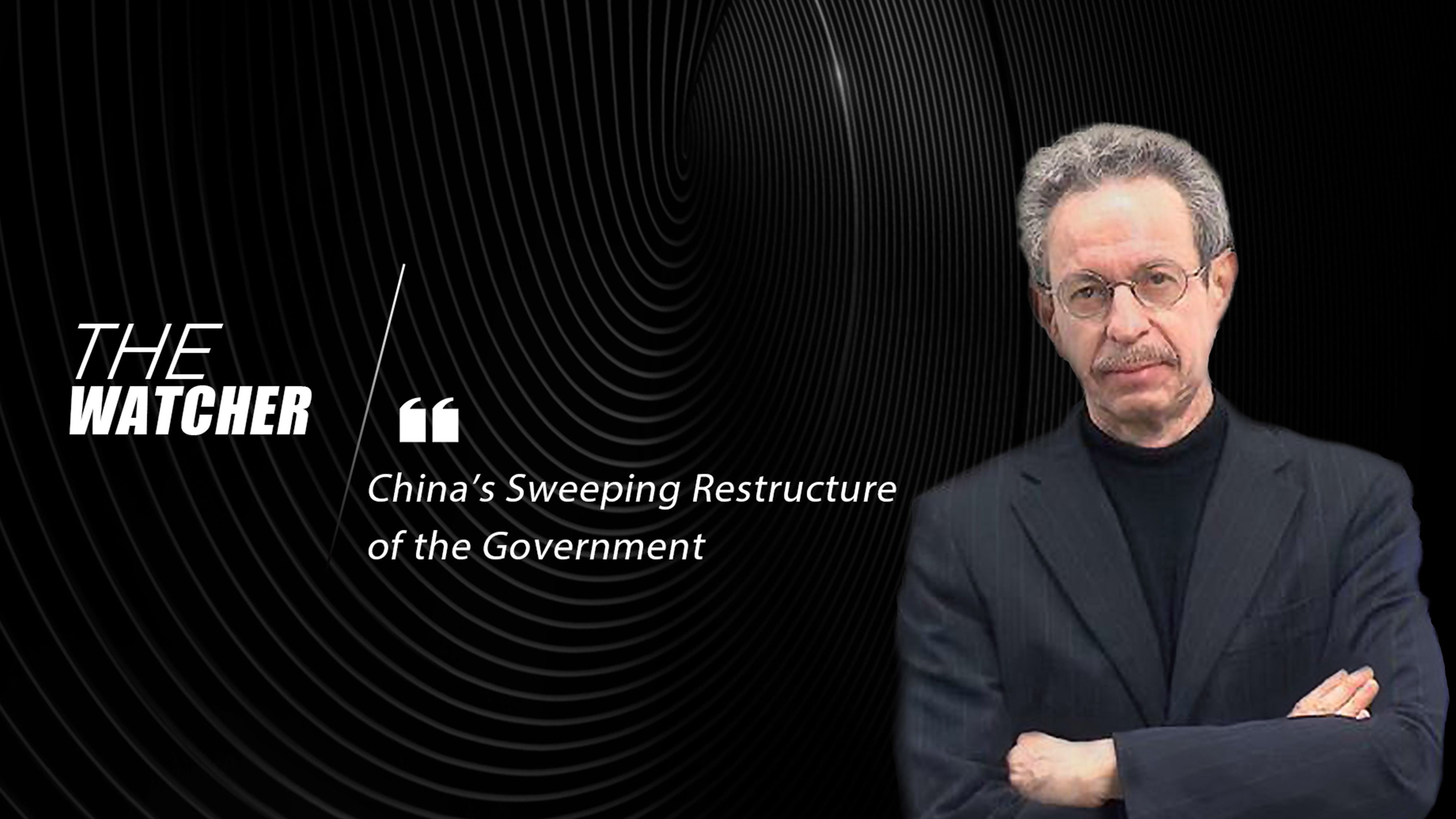
Opinions
19:17, 17-Apr-2018
The Watcher: China’s Sweeping Restructure of the Government
By Robert Lawrence Kuhn
03:24

I’m Robert Lawrence Kuhn and here’s what I’m watching: China’s sweeping restructure of the government.
In the most ambitious institutional reform in decades, China’s State Council overhauled more than two dozen ministries and agencies. The dramatic move streamlines the bureaucracy, eliminates institutional conflicts of interests between government bodies, aligns authority with responsibility, and significantly enhances the leadership of the Party in the management as well as in the oversight of the government.
Although the government restructure has multiple motivations, a prime driver is to support China’s continuing development under complex conditions – a slowing economy, uncertain financial risk, unacceptable pollution, the special demands of innovation.
All these and more were evident in the Work Report of the Government, delivered by Premier Li Keqiang at the opening meeting of the first session of 13th National People’s Congress.
To understand the context of these historic changes, we must appreciate the multiple challenges China is facing.
Since everything is interconnected, there is still much we need to know about China. Given these challenges, at home and abroad, the government restructure is timely.
Some media describe it as a “reshuffle”, as if the random rearrangement of a deck of cards. I beg to differ. This restructure is as deliberate as it is far-reaching — and planned precisely to address a host of contradictions.
According to Politburo member and Vice Premier Liu He, who is now responsible for managing China’s financial affairs, the Party must lead and enable the efficient running of the government, and that after the restructuring, government agencies should downsize their departments and shorten their chains of command.
The outcome is to strengthen the CPC’s leadership throughout China. In fact, deepening reform is now defined, for state as well as for Party institutions, as strengthening the CPC's leadership in every sector. The intent is consistency and uniformity in implementing policy. This facilitates efficiencies, granted.
But does it encourage innovation, which is the first of President Xi Jinping’s five New Concepts of Development and the spearhead of China’s new economy?
In any event, this startling government restructure followed swiftly after the adoption by the National People’s Congress of the Constitutional Amendment, and although both were long in the works, their rapid-fire sequence serves to underscore the preeminence of President Xi Jinping in setting the new agenda, and the power of the Party in implementing the new policies. I’m keeping watch. I’m Robert Lawrence Kuhn.
(Dr. Robert Lawrence Kuhn is a CGTN anchor, a public intellectual, international corporate strategist and investment banker.)

SITEMAP
Copyright © 2018 CGTN. Beijing ICP prepared NO.16065310-3
Copyright © 2018 CGTN. Beijing ICP prepared NO.16065310-3